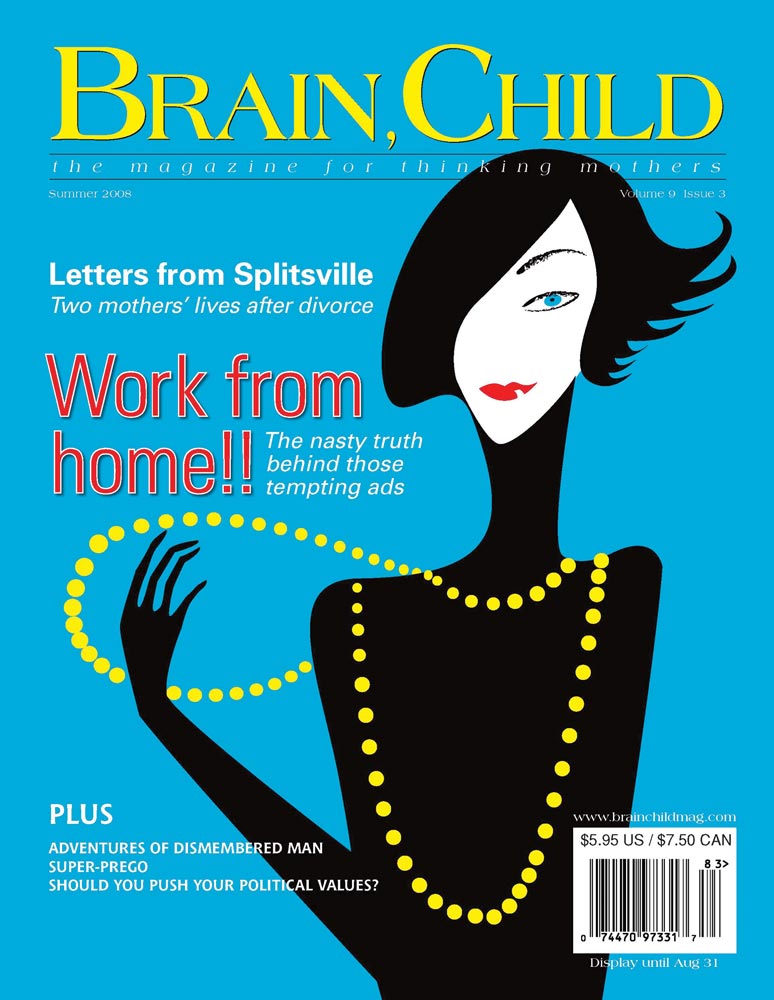Mom’s the Word
A magazine devoted to mothers attracts a strong following

In 1999, when Jennifer Niesslein (Col ’94) and Stephanie Wilkinson (Grad ’97) went out and bought the book How to Run a Successful Magazine, the two had no idea if their venture would even get noticed. They just felt compelled to create a magazine that, as thinking mothers, they would want to read.
In the nearly 10 years since its inception, Brain, Child, has become an award-winning publication with a healthy subscription base of 36,000 readers. Its smart humor and mother-centric philosophy have attracted literary heavyweights such as Barbara Kingsolver and Anne Tyler as contributing writers. Its profile has also been raised by the prestigious Utne Independent Press Awards.
Brain, Child relies on a staple of essays from freelance writers (usually also mothers) in addition to regular features and columns. “We currently get about 100 submissions for each one we can use,” Niesslein says. Because of the steep competition and essay-driven format, readers can count on a variety of perspectives and voices in each issue.
The most recent issue touched on such wide-ranging subjects as lesbian parenting and the role of soccer moms in the 2008 election. “We don’t really adhere to any one parenting philosophy,” Niesslein explains. “When Stephanie and I started the magazine, we both had young children and found that there was a lot of parenting advice and how-tos out there, but really nothing dealing with the meatier issues of motherhood.”
Niesslein cites the New Yorker and Salon as inspirations, but notes that Brain, Child is the only print magazine devoted solely to the intellectual and emotional life of mothers.
Given the ink spilled over the “mommy wars” in recent years, wherein stay-at-home moms and career moms are taken to task about their choices, readers of Brain, Child seem to take refuge in the magazine’s nonpolitical stance. “We really just assume that mothers are making the best choices for their particular families, and don’t have a set philosophy on working versus staying home,” Niesslein adds. “Our position is whatever works for your family is right.”
Those who buy Brain, Child tend to be well-educated, health-conscious and relatively affluent women who want to be thoughtful about the choices they’re making for their families, according to the magazine’s Web site, brainchildmag.com. Niesslein notes that the quarterly sells well on the stands in natural food stores.
While many print publications are wringing their hands over the growing trend toward electronic publication, Niesslein isn’t too worried. “When you’re breast feeding or on the go, you need something portable. I think there’s always going to be a place for print.” In fact, they’ve recently expanded their print offerings with Brain, Child’s Greatest Hits, a special anthology of essays, features and humor culled from past issues.